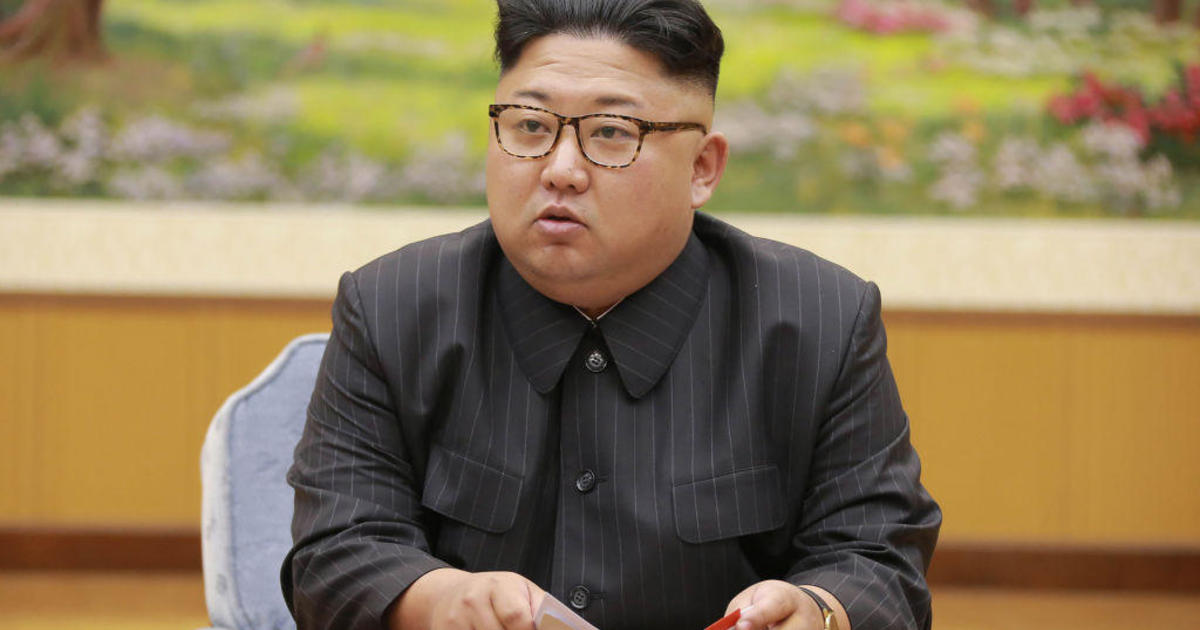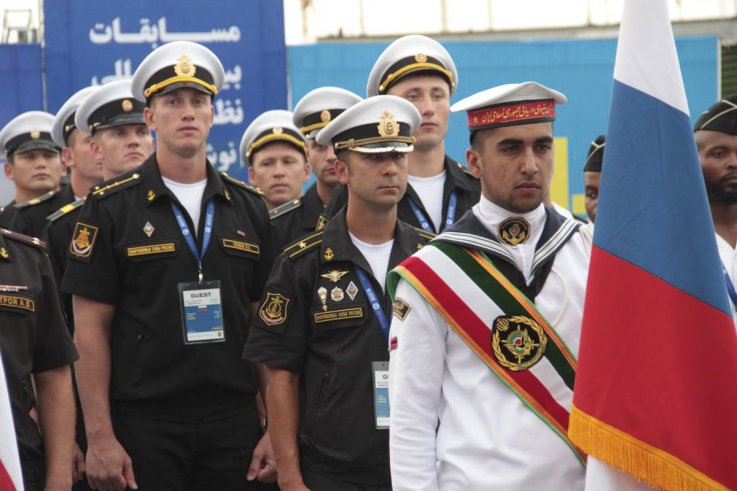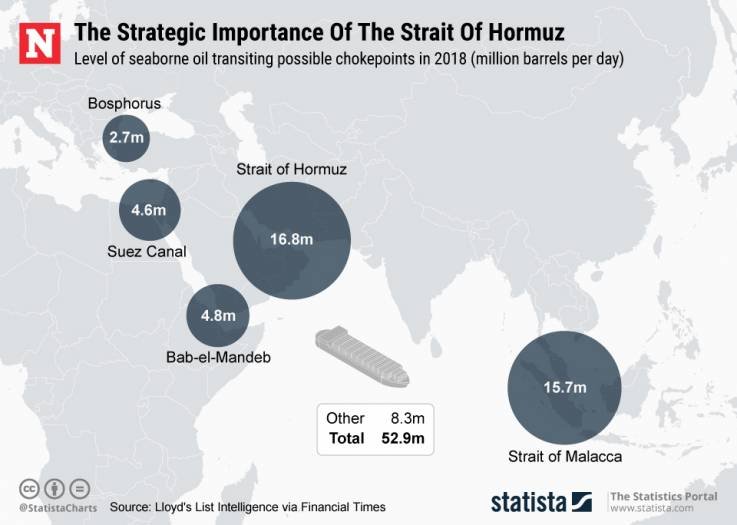North Korea launches short-range missiles for 2nd time in a week, and U.S. had little or no warning - CBS News
North Korea launches short-range missiles for 2nd time in a week, and U.S. had little or no warning - CBS News |
- North Korea launches short-range missiles for 2nd time in a week, and U.S. had little or no warning - CBS News
- Iran Says It Will Expand Military Ties with Russia, Hold Joint Drills as U.S. Tries to Build Rival Coalition - Newsweek
- Hurricanes Erick and Flossie could both affect Hawaii - USA TODAY
- Congressman asks Border Patrol chief to clarify testimony about U.S. citizen held for weeks - Dallas News
| Posted: 31 Jul 2019 04:13 AM PDT  North Korea conducted its second weapons test in less than a week Wednesday, firing two short-range ballistic missiles off its east coast in a move observers say could be aimed at boosting pressure on the United States as the rivals struggle to set up fresh nuclear talks. CBS News correspondent Ramy Inocencio says U.S. officials have told CBS News the weapons fired Wednesday appeared very similar to ones launched six days ago -- which were nuclear-capable, and would be difficult for defense systems to track and destroy. Furthermore, CBS News has learned that the U.S. gains little or no warning before North Korea fires off its short range missiles. South Korea's Joint Chiefs of Staff said in a statement that the missiles were launched from Wonsan, a city the North pushes as a vacation destination but that it also uses as a regular launch site. It said both missiles were believed to have flown about 155 miles at a maximum altitude of 19 miles and that the South Korean and U.S. militaries were trying to gather more details. The test was yet another North Korean violation of U.N. Security Council resolutions and comes as the country's negotiations with the U.S. over its nuclear weapons program are at a stalemate and as Pyongyang has expressed anger over planned U.S.-South Korean military drills. Last Thursday North Korea fired two short-range missiles in what state-run media called a "solemn warning" to "South Korean military warmongers." South Korean officials said last week's launch involved a new type of a short-range ballistic missile. That was the first launch by North Korea since Kim Jong Un and President Trump met at the Demilitarized Zone in June and Mr. Trump took a few historic steps across the border into North Korea. Mr. Trump told Fox News last week that he was "getting along well" with Kim and said the country "really haven't tested missiles other than smaller ones." Secretary of State Mike Pompeo has said no new high-level talks between U.S. and North Korean officials are currently scheduled. CBS News' Inocencio reports that, along with the missile launches, tension may also be ratcheted up this week by new details on a new submarine unveiled by the North last week. South Korean officials said Wednesday that the sub appears capable of carrying three ballistic missiles, and they expect it will be deployed soon. Both launches were violations of U.N. Security Council resolutions that ban North Korea from engaging in any launch using ballistic technology. While the North could face international condemnation over the latest launches, however, it's unlikely that the nation -- already under 11 rounds of U.N. sanctions -- will be hit with fresh punitive measures. The security council has typically imposed new sanctions only when the North conducts long-range ballistic launches. North Korea's state media said last week's missile tests, supervised by Kim, were designed to deliver a "solemn warning" to South Korea over its purchase of high-tech U.S.-made fighter jets and its plans to conduct military drills that Pyongyang sees as an invasion rehearsal. The North's state media report avoided a direct criticism of the United States. South Korea's military said the flight data of the weapon launched last week showed similarities to the Russian-made Iskander, a short-range, nuclear-capable missile. A North Korean version could likely reach all of South Korea -- and the 28,500 U.S. forces stationed there -- and would be extremely hard to intercept. |
| Posted: 29 Jul 2019 03:04 PM PDT The head of Iran's navy has said he signed a document to expand ties with Russia, with whom his forces planned on conducting joint drills in the same tense waters that the United States sought to counter the Islamic Republic with international support. Iranian naval commander Rear Admiral Hossein Khanzadi said Monday that he signed an unprecedented memorandum of understanding with Russia, largely involving the two countries' naval forces, and that it "may be considered as a turning point in relations of Tehran in Moscow," according to Iran's semi-official Fars News Agency. The news came as Khanzadi was visiting St. Petersburg to celebrate Russia's Navy Day and he further announced that "joint Russian-Iranian exercises in the Indian Ocean are expected to take place soon." "When we talk about the Indian Ocean, perhaps the most significant part of the area is the northern Indian Ocean, which flows into the Gulf of Oman, the Strait of Hormuz and also the Persian Gulf," Khanzadi said. Such an exercise would take place in the same waters in which the U.S. has accused Iran of attacking and seizing international vessels in recent months, charges Tehran has denied as it faced mounting sanctions in the wake of Washington's withdrawal last year from a 2015 nuclear deal with its longtime foe.  The agreement, officially known as the Joint Comprehensive Plan of Action, was also signed by Russia as well as China, the European Union, France, Germany and the United Kingdom — all of whom still support it in spite of President Donald Trump's exit. Washington has threatened to hit the countries with sanctions should they engage in trade with blacklisted Iranian business sectors, such as its otherwise lucrative oil industry. The Pentagon has also deployed additional military assets such as 2,500 troops, a carrier strike group and a bomber task force to the Middle East in response to what the White House has claimed was a heightened threat posed by Iran. The U.S. has also held Iran responsible for two series of explosions that targeted foreign oil tankers traversing the Gulf of Oman since mid-May, accusations the country has denied. Unmanned aerial systems too have been at the center of worsening frictions as the Trump administration claimed to have downed an Iranian drone last week, about a month after Iran's elite Revolutionary Guards shot down a U.S. Navy drone in the Persian Gulf region. Tehran denied losing a drone and the Revolutionary Guards seized a U.K.-flagged vessel the following day, accusing it of endangering vessels in the Strait of Hormuz weeks after the U.K. detained an Iranian supertanker accused of attempting to transport oil to Syria via the Strait of Gibraltar in what London called a violation of EU sanctions. With tensions rising, the U.S. and the U.K. have made separate calls for an international maritime coalition to patrol the Persian Gulf. Secretary of State Mike Pompeo told the Economic Club of Washington that the U.S. would be successful in building "a maritime security plan" and that "we need countries from all across the world to assist us in protecting commercial transit." Pompeo told Fox News Channel last week that when it came to retreiving the U.K,-flagged vessel in Iranian custody, "the responsibility...falls to the United Kingdom to take care of their ships" and newly-appointed U.K. Foreign Minister Dominic Raab told London-based newspaper The Times on Friday that any European-led mission would "doesn't seem to me to be viable without American support as well." France and Germany signaled early interest in the U.K.'s proposal but have sought to distance themselves from the U.S. position toward Iran. South Korean Defense Ministry spokesperson Colonel Roh Jae-cheon told reporters Monday that his military was "looking into various options to ensure the safety of our vessels" in the Strait of Hormuz when asked if Seoul would sign on to the Pentagon's initiative, according to Yonhap News Agency.  Russia has expressed skepticism at the two Western projects, urging instead for security talks that involve Iran and other regional powers, including countries on the Arabian Peninsula that have backed Washington's hard-line position against Tehran. Chinese Foreign Ministry spokesperson Hua Chunying told journalists Thursday Beijing "welcomes the relevant proposal of Russia and stands ready to step up communication and coordination with relevant parties." Iran has warned against the move, with President Hassan Rouhani saying Sunday that "the presence of foreign forces will not contribute to the security of the region, but will be a major cause of tension" at a meeting alongside Omani Foreign Minister Yusuf bin Alawi bin Abdullah in Tehran. Muscat's top diplomat "discussed several issues, including bilateral relations, peace in the region and the need to maintain the security and safety of international navigation in the Gulf" with the Iranian leader, according to a readout from his ministry. Moscow and Tehran have coordinated militarily in their joint campaign to support Syrian President Bashar al-Assad in Syria and their strategic partnership has so far endured repeated U.S. and Israeli appeals to Russia to end it. At the same time, Russia has called on Iran not to enrich uranium beyond limits outlined in the 2015 deal, though it has joined China in consistently blaming the U.S.' withdrawal for the Islamic Republic's decision to do so. |
| Hurricanes Erick and Flossie could both affect Hawaii - USA TODAY Posted: 30 Jul 2019 06:53 AM PDT Life hacks like using your washer as a cooler and building an indoor dog potty can help people weather the hurricane season. USA TODAY A pair of Pacific hurricanes – Erick and now Flossie – could both affect Hawaii over the next few days, forecasters say. On Tuesday, Erick grew into a "major" hurricane in the central Pacific Ocean and is forecast to approach Hawaii toward the end of the week, forecasters said Tuesday. But the Central Pacific Hurricane Center said Erick should begin losing strength Wednesday and gradually weaken back into a tropical storm before sliding south of Hawaii on Thursday and Friday. "Impacts such as higher surf, strong winds or heavy rainfall are possible even with this tropical system passing south of the Big Island," the National Weather Service in Honolulu said. "These additional local island-by-island impacts are highly dependent upon the size, intensity and track of Erick as it moves through the Hawaii region. A wet weather pattern for sure." Erick is not forecast to make a direct hit on Hawaii, meteorologists said. As of 5 p.m. EDT Tuesday, Erick was about 840 miles east-southeast of Hilo, Hawaii. It had maximum sustained winds of 130 mph and was moving to the west at 15 mph. That makes Erick a Category 4 "major" hurricane, the hurricane center said. Another tropical system, Flossie, reached hurricane status in the eastern Pacific Ocean Tuesday afternoon. As of 5 p.m. EDT, Flossie was centered about 1,045 miles southwest of the southern tip of the Baja California Peninsula and was moving west at 14 mph. The hurricane had maximum sustained winds of 75 mph. Flossie could take a similar or perhaps even more northerly track than Erick, AccuWeather said. That could put Hawaii in the forecast path of Flossie by early next week. "It is too early to tell the exact track that Flossie will take, but early indications suggest that it may either pass directly over the islands or just to the north," AccuWeather meteorologist Kyle Elliott said. Flossie is the fourth hurricane of the Pacific hurricane season, the hurricane center said. Closer to the U.S. mainland, forecasters were watching a system in the Caribbean Sea that has a 10% chance of becoming a tropical depression or storm within the next five days. "This system is expected to move west-northwestward with no significant development during the next few days, producing locally heavy rainfall over Puerto Rico and the Virgin Islands, Hispaniola and portions of the southeastern Bahamas," the hurricane center said. All of Puerto Rico and the U.S. Virgin Islands were under a flash flood watch because of the heavy rain from the system. "Under this weather pattern, widespread showers and thunderstorms will maintain a high risk for flooding over portions of the islands through the short-term period," the National Weather Service in San Juan said. "As soils become saturated, the potential of mudslides in steep terrain will remain high through at least Wednesday." By week's end, the system should be near Florida or the Bahamas. Read or Share this story: https://www.usatoday.com/story/news/nation/2019/07/30/hurricane-erick-forms-pacific-could-impact-hawaii-weeks-end/1864924001/ |
| Posted: 29 Jul 2019 01:51 PM PDT  "At no time in Border Patrol custody did he say that he was a U.S. citizen," Hastings told the committee. In response to Hasting's comment, Claudia Galan, the attorney representing Galicia, provided to The Dallas Morning News with Galicia's notice to appear in court, in which DHS accused him of falsely claiming to the Border Patrol that he is a U.S. citizen. The notice reads, "On or about June 27, 2019, you were found at the Falfurrias, Texas, Border Patrol Checkpoint, a distance of more than 25 miles from the United States border with Mexico ... You did not receive the permission of an immigration officer to proceed beyond that 25 mile limit ... At that time, you falsely represented yourself to be a citizen of the United States for the purpose of furthering your entry into the United States." In a letter shared with The News by Lieu's office, the congressman asked Hastings to clarify his comments and explain why Galicia's claims of citizenship were never verified during the more than three weeks he was held. Lieu on Monday told The News that Hastings' comments and the allegations in the notice to appear "can't both be true." Lieu's office gave Hastings an August 5 deadline to respond. Lieu added that he is disappointed that Hastings didn't address the poor conditions that Galicia described in the Border Patrol facility during his testimony before the Congressional committee. Galicia told The News that he lost 26 pounds and wasn't allowed to shower in the 23 days he spent in Border Patrol custody. |
| You are subscribed to email updates from "news of the week usa" - Google News. To stop receiving these emails, you may unsubscribe now. | Email delivery powered by Google |
| Google, 1600 Amphitheatre Parkway, Mountain View, CA 94043, United States | |
Comments
Post a Comment